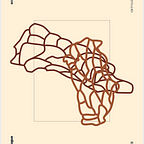FOUND IN TRANSLATION
Public Space Definition
Public space is built on the incidental nature of the interaction that occurs within it, in that one cannot choose who they share the space with, and therefore provides a place of relatively equal interaction in a world otherwise dominated by private and exclusive spaces.
Short Abstract
Public space and the way that humans exist in the metropolis will forever be changed by the COVID-19 pandemic. It is clear that it will become increasingly infeasible for us to exist in the density we have become accustomed to, both in the macro of urban planning and development, and in the micro of our daily lives. Found in Translation addresses the latter, confronting our own self-obsessed, emotionally-distant, screen-crazed, headphone-wearing, PPE-equipped selves with the physicality of our own bodies and those around us, who we strive to ignore and separate from at nearly every juncture in public space today. The world is changing, but we cannot allow physicality, vital to our understanding of ourselves and our relationship to others, to drift away. In the end, I think we all know this at some level. The protests happening across America right now in response to systemic racial inequality, brought into stark relief by COVID-19, exemplify our innate human understanding that the physical presence of our bodies have power and impact. In an age of hashtag activism and the unprecedented concept of “remote-change”, people have realized that there is no substitute for the physical when it comes to using the public sphere for its ultimate purpose: discourse. Found In Translation is an interjected reminder-in-passing to reengage the physicality of yourself, the space, and the others around you, because only through that consciousness can we have the meaningful, tangential interactions that build an empathetic society.
